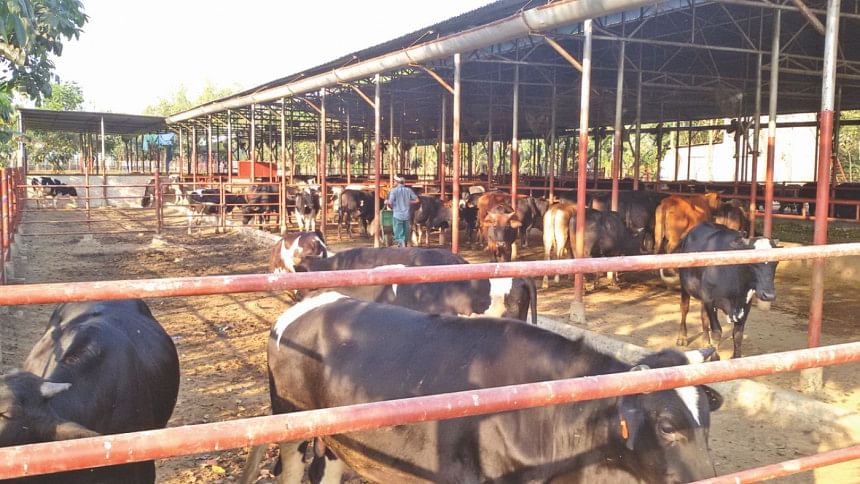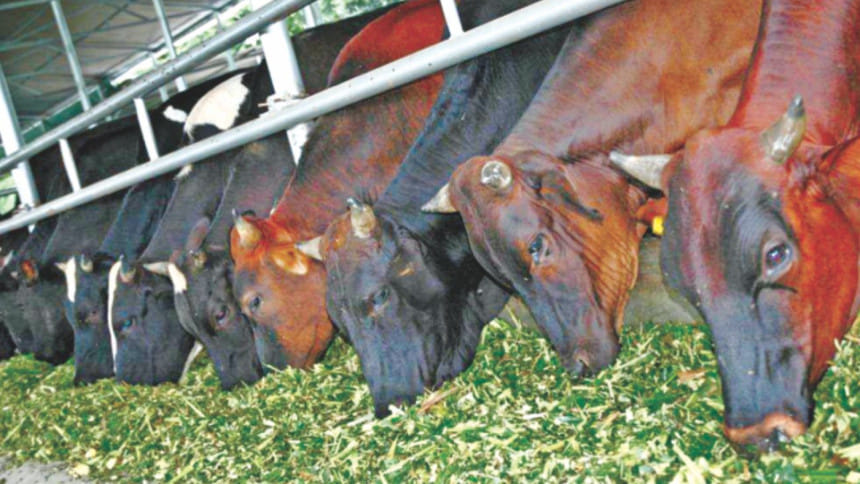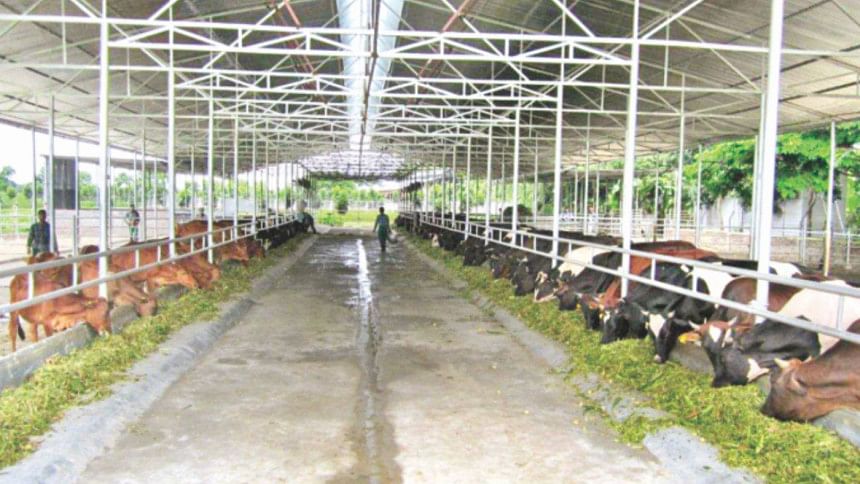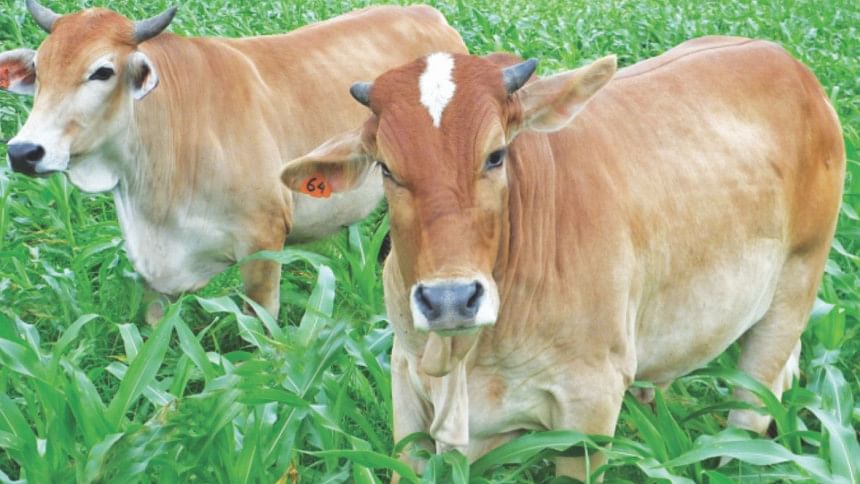A Qurbani milestone for Bangladesh

Unlike many other Muslim-majority countries of the world, Bangladesh lags behind on the cattle-logistics of Eid-ul-Adha. The streets, filled with cows and goats, become unclean and inconvenient. Post-Qurbani, the foul smell and gore take days – even weeks – to go away entirely. Why can we not have proper abattoirs like many other countries do?
The wait is over. For the first time in Bangladesh, Bengal Meat has introduced an Eid-ul-Adha service, where you can buy cows and the rest (from caring for the cattle to slaughtering to butchering) is their headache. If the hassles of going to the 'haat', looking after the cattle, slaughtering it and cleaning the premises seem a headache, Bengal Meat's Qurbani service is for you.
HOW IT WORKS
Visit www.products.bengalmeat.com /qurbani. The website is a user-friendly one with a simple layout. Click on the 'Choose your Cattle' tab to visit the virtual haat.You can filter through price range (which starts from Tk 50000) and live weight. Check for the availability status and other relevant information. Click on the picture of the cows for bigger view. Alternatively, you can buy a cow from elsewhere and send it to the slaughterhouse. However, Bengal Meat will not accept Indian and Nepali cows.
When you are satisfied, it's time to purchase. You cannot do that online, though. There are four outlets of Bengal Meat in Dhaka – located at Gulshan, Uttara, Dhanmondi and Wari. You will have to go to an outlet and tell them which cow you would like to purchase and provide the name(s) of people making the sacrifice. Hurry! You cannot buy cows on the last five days before Eid. The meat will then be delivered to your home.

THE TRANSACTION
At this point, you will pay for the cow plus Tk17000 as service charge. You can deduct the cost of hide (fixed at Tk1700) from the payment. And voila! You have just outsourced your hassles so that you can relax during Eid whilst keeping your premises clean and safe from germs and other health concerns.
WHY TRUST BENGAL MEAT?
The organisation has built a strong reputation over years of business – amongst consumers and many top restaurants. It is also the first abattoir in South Asia to be certified with ISO22000:2005. Bengal Meat's state of the art facility in Pabna will monitor, will maintain and scrutinise cattle – from livestock to the time it reaches your home – ensuring that the animal does not have any disease that could affect human beings upon consumption and that no contamination takes place while handling the meat.

For Muslims, the meat must be halal, be it Eid-ul-Adha or any other time of year. Bengal Meat's produce has been certified by Islamic Foundation, Bangladesh. Bengal Meat says that the Qurbani services will be executed under the monitoring of a representative from Islamic Foundation, ensuring that the entire process is done in a halal way.
A DETERRENT?
Take note that meat will be delivered on the third day of Eid. Therefore, if you opt for this service, make sure you are fine with waiting for two days before you can eat your Qurbani meat.

WAY TO THE FUTURE
It is high time that we wake up to the unhygienic and unprofessional practices that take place during Eid-ul-Adha. If your complain was the unavailability or inadequacy of a state of the art abattoir, Bengal Meat has solved that.
Of course, it will take some time before the current culture is replaced with the safer and healthier one. But this change has been started by Bengal Meat this year. Wayne Gaskell, Director, Technical & Industry, Bengal Meat concluded, "This country is gradually changing for the better. In the future, more slaughter houses will perhaps come up. And hence, people will start realising the benefits of doing Qurbani through proper abattoirs."
By M H Haider
Photo courtesy: Bengal Meat

 For all latest news, follow The Daily Star's Google News channel.
For all latest news, follow The Daily Star's Google News channel. 



Comments